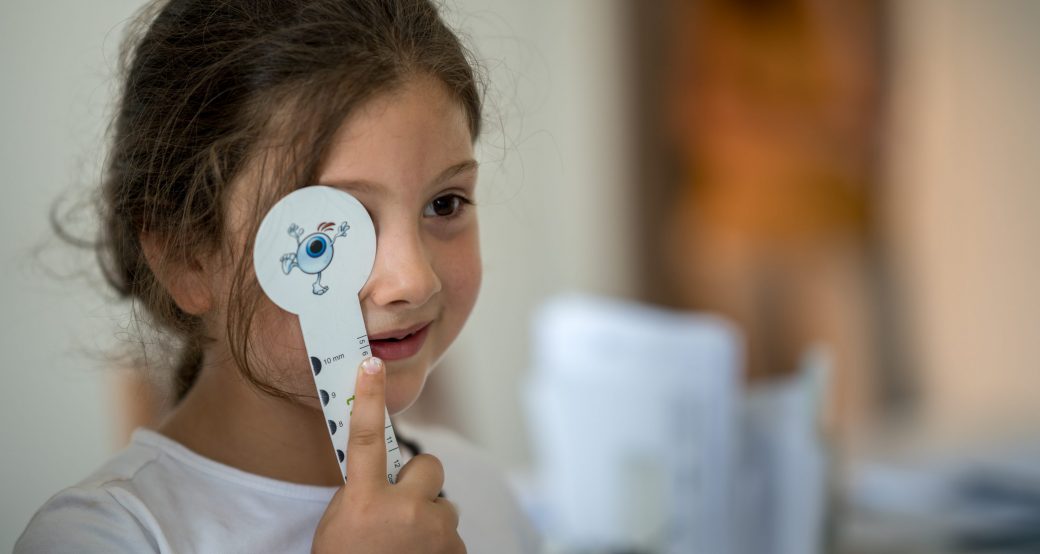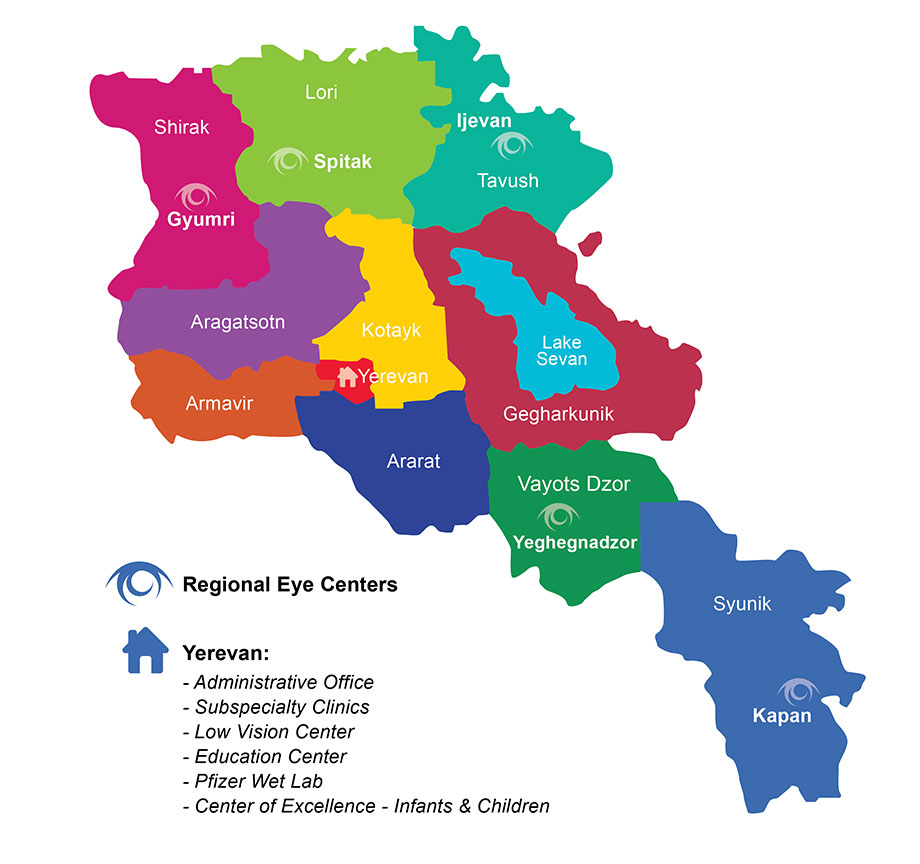The Armenian EyeCare Project has been conducting regular eye screenings in schools across Armenia since 2004 as part of our ongoing mission to eliminate preventable blindness and provide access to eye care for all residents in the country. Visiting schools in regions throughout the country, we have screened nearly 175,000 schoolchildren and conducted public education lessons for over 15,000 students to date.
Recently, in cooperation with Children’s Hospital L.A., we have launched a large-scale School Screening Program, which uses innovative technology to detect common eye diseases found among children in Armenia. For many eye diseases, time is critical and detecting a condition early can be crucial in saving a child from severe vision impairment and even possible blindness. As children get screened in schools across Armenia, we collect and provide information on the primary eye disorders found among these children in hopes of detecting these conditions early on and possibly preventing them in the future.
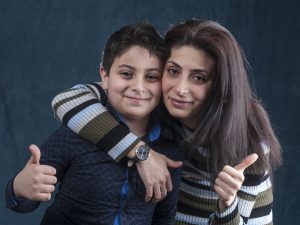
Both mother and son are happy after a successful eye screening
Since October 2018, within the scope of our large-scale School Screening Program, 12,000 schoolchildren have been screened in Armenia’s capital of Yerevan, of which about 20 percent have been referred to specialized eye hospitals for further detailed examination and possible treatment.
Additionally, more than 10,000 children have undergone eye screenings in the rural regions of Armenia, totaling over 20,000 schoolchildren screened across Armenia to date through this program.
Leyli Matinyan, Head of Academic Affairs at Vissarion Belinsky School N38 in Yerevan, was very happy that her school ended up in the pool of selected schools for screening. “The AECP’s medical staff worked in our school for a whole week to screen our entire primary and middle school classes,” Matinyan said. “Each child in need of a detailed exam was referred to a clinic and the AECP covered that expense. I consider this program even more important for financially vulnerable families who have many children and cannot afford to pay attention to health problems. We have had 100 percent positive feedback from parents.”
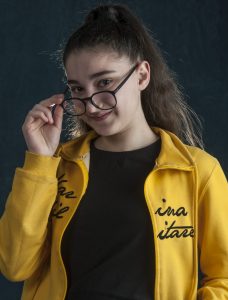
Nare with her eyeglasses
“I loved the program,” one parent, a mother of a 13 year-old student named Nare, said. “My daughter never wore eyeglasses and we never knew she needed them. We are so thankful that you shed light upon her vision problem. If it weren’t for your attentive care, we would have never noticed.” The doctor said that Nare would need to wear prescription eyeglasses for 6-8 months and then her vision would likely be corrected and she would no longer need to wear them afterwards. Nare, who had never imagined wearing glasses, turned out to love them so much she made a joke saying she would change the glasses to non-prescription just to continue wearing them.
Participating physicians have also noticed the benefits of our School Screening Program. “Thanks to this program we discovered a large number of children who needed treatment,” Dr. Yelena Matevosyan, one of the ophthalmologists who cooperated with the AECP on this initiative, said. “About 60 percent of the children screened did not know they had vision issues.” Most conditions found among these screened schoolchildren have been nearsightedness, farsightedness, astigmatism and sometimes even cataracts. Those diagnosed with vision disorders will receive check-ups regularly to follow the development of the disease and prevent it from progressing if possible.
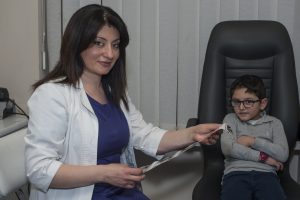
Dr. Yelena Matevosyan screens a child
“The general screenings are very important because some parents simply don’t have the means to take their child to an eye clinic. Others don’t even realize that their child has a vision issue because their child has not communicated one to them or realized that an issue exists,” Dr. Matevosyan said. “This is a marvelous program because it does not put the parents in a tough position. It is the traveling team of AECP physicians who bring the eye care conveniently to them.”
The program is especially important for children who come from financially vulnerable families. Among the children who needed help most was Raha. This smiling girl is a refugee from Iran who now lives in a refugee shelter in Armenia with her family. Bita, Raha’s mother, says they get by with great difficulty.
“We lost everything in Tehran and came here to start from scratch,” Bita says. “Because of the stress, my husband has developed health problems and I do not know Armenian well enough, which has become a problem in finding a job. Our future is still a blur but we know that education is important so we try to secure everything Raha needs for school.”
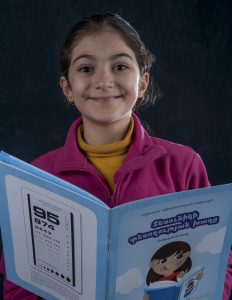
A smiling Raha
Recently Bita noticed that Raha gets tired of reading quickly and her eyes become red. But she had no way to take her daughter to the eye doctor as she knew it was a service her family couldn’t afford.
“I was so happy when my teacher said that doctors were coming to perform eye screenings at our school,” Raha said. “Everyone was very nice to me. They tried different glasses and found the one that helped me see best – even the smallest letters! Now I can’t wait to receive my very own pair of glasses so I can study well.”
Our School Screening Program also features a public education component. Doctors not only screen the children at schools, but also explain to the students how to practice good eye health. “I love computer games but now I know that I need to limit my time in front of gadgets,” 10-year-old Sasun said. Sasun underwent a general eye screening at his school and thankfully he doesn’t have any issues with his sight, but now he knows what to do to take good care of his eyes. If you would like to contribute to our School Screening Program, please consider donating.






